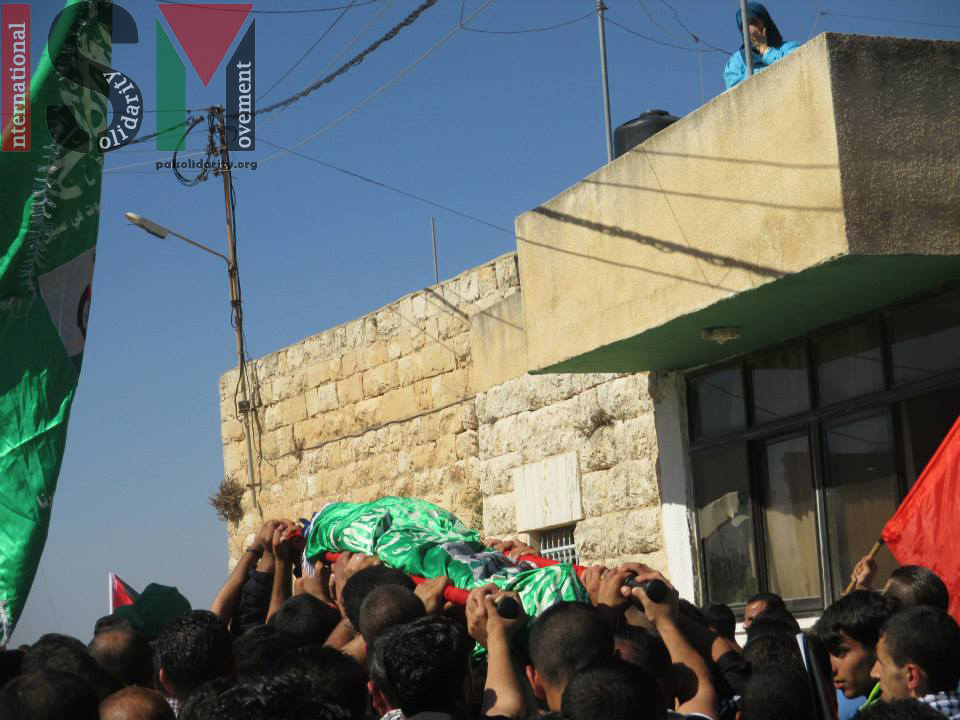Author: ISM Media
-
Settlers destroy Palestinian property under the protection of Israeli soldiers
28th October 2014 | International Solidarity Movement, Khalil team | Tel Rumeida, Occupied Palestine Today at approximately 1:30 PM in the Tel Rumeida neighborhood of occupied al-Khalil (Hebron), the head of security for the illegal settlements in the area attempted to destroy the property of a Palestinian man named Muhammad Knebi. Settlers have been destroying the newly built…
-
Israeli military demolishes a Bedouin village in the South Hebron Hills
28th October | Operation Dove | Um Al Kheir, Occupied Palestine Yesterday, Israeli forces demolished a total of seven structures in the Bedouin village of Um al Kheir. The structures demolished are, three houses made of concrete, a caravan donated by the United Nations (United Nations Human Rights Response Fund with the support of Ireland, Norway, Spain, Sweden,…
-
Clahes after funeral for murdered Orwa Hammad
27th October 2014 | International Solidarity Movement, Ramallah team | Silwad, Occupied Palestine Yesterday a funeral was held for 14-year-old Orwa Abd al-Hadi Hammad, shot dead by the Israeli military on Friday, in the small village of Silwad close to Ramallah. Orwa was shot dead by Israeli forces on Friday, during a demonstration at the edge of the small village of…



